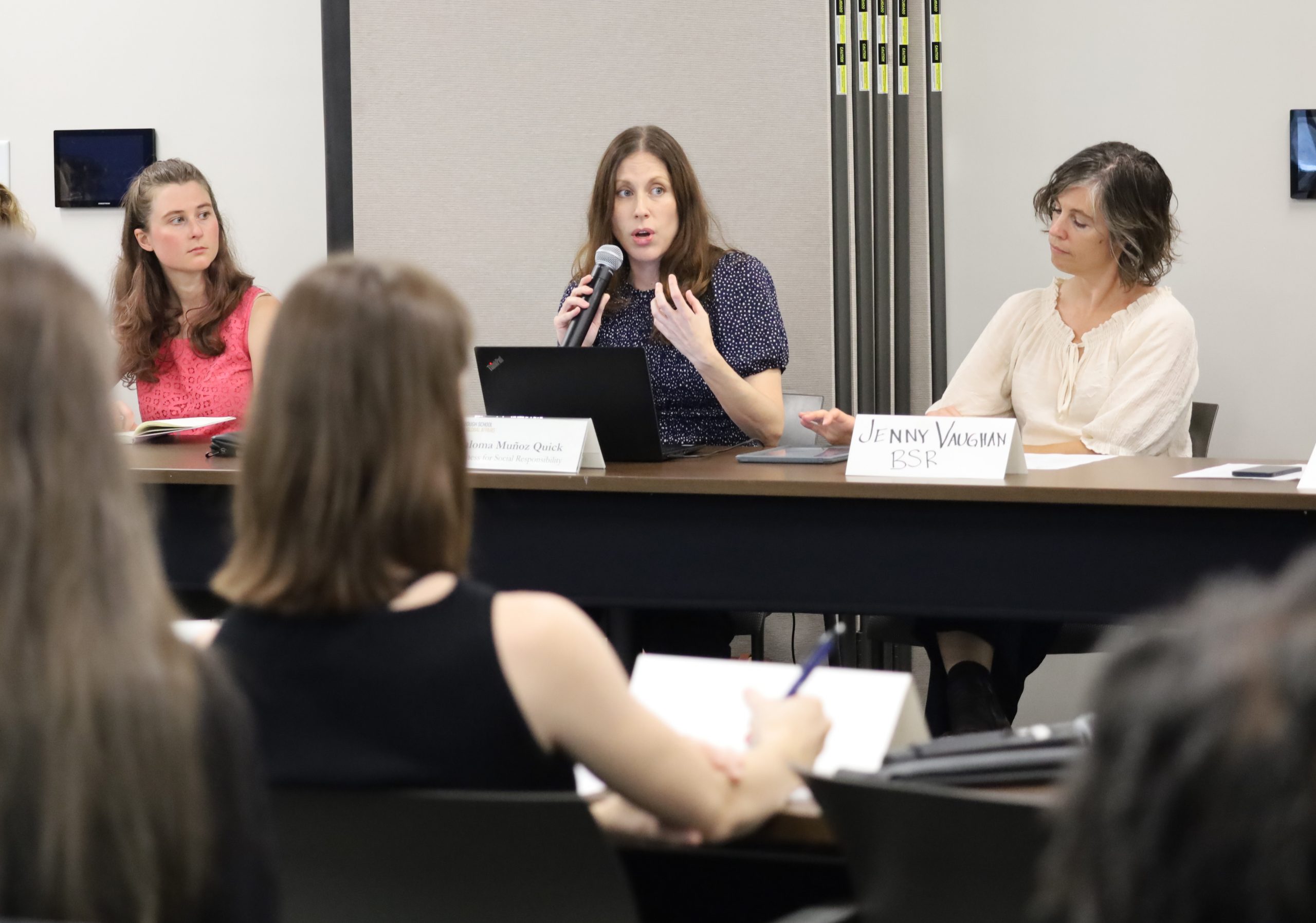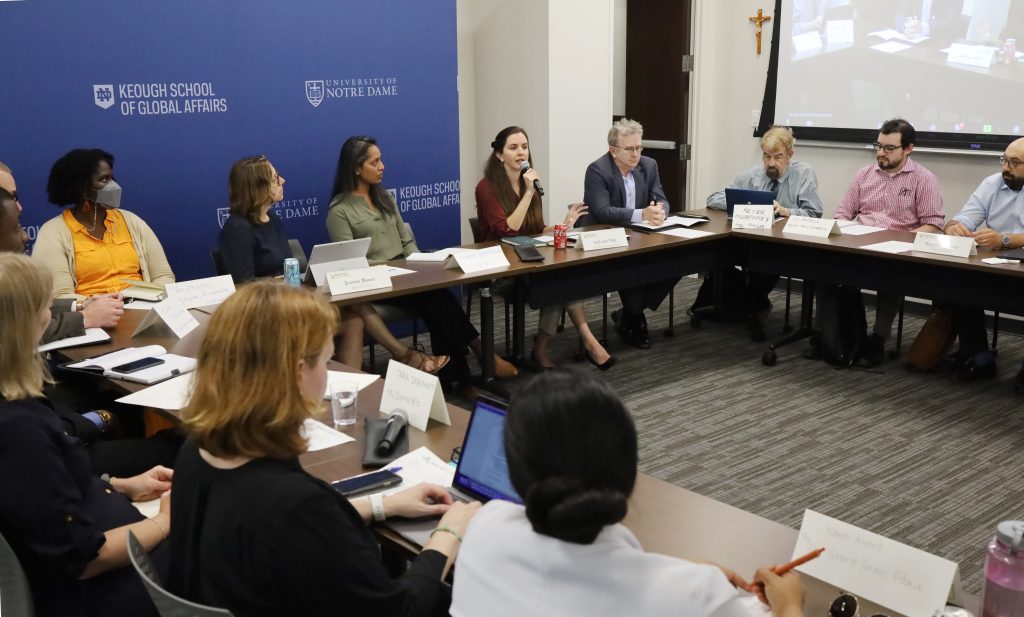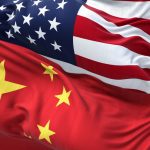The United States lags behind peer countries in its efforts to protect human rights and the environment. How can it make much-needed improvements?
A panel of experts recently gathered at the Keough School of Global Affairs Washington Office for a discussion that will influence how the US government works with companies to ensure human rights and environmental due diligence. The Keough School organized the August 31 roundtable in partnership with the World Benchmarking Alliance, Rights CoLab, BSR, and the Investor Alliance for Human Rights.
Participants compiled key recommendations as part of the input process for updating the United States’ National Action Plan on Responsible Business Conduct (NAP). The plan draws on the UN Guiding Principles on Business and Human Rights, as well as the OECD Guidelines for Multinational Enterprises.
This expert input comes at a critical juncture: A recent assessment by the World Benchmarking Alliance found that 84% of US companies scored zero on human rights due diligence, compared with 59% of companies from other G7 countries.
“At the heart of responsible business conduct is human rights and environmental due diligence, and we see a big divide between the level of due diligence conducted by American companies compared with companies in other G7 countries” said Sofía del Valle. A Keough School master of global affairs graduate, del Valle helped organize the roundtable and serves as engagement manager for the World Benchmarking Alliance’s Social Transformation Team.
The process of updating the United States’ National Action Plan is an opportunity to encourage crucial policy improvements.
Recent trends only accentuate the importance of due diligence, del Valle said. Earlier this year, the European Commission adopted a proposal for a directive on corporate sustainability due diligence, and Japan’s Ministry of Economy Trade and Industry has issued its own set of guidelines.
“We see the process of updating the United States’ National Action Plan as an opportunity to encourage crucial policy improvements,” she said.

More than 20 participants contributed to the discussion, which focused on policy guidance and commitments, greater transparency and disclosure, and procurement processes. Speakers included Ernesto Archila, private sector senior advisor at Oxfam America; Joanne Bauer, co-founder of Rights CoLab; Isabelle Glimcher, litigation association at Debevoise & Plimpton LLP; Corinne Lewis, immediate past co-chair for the International Human Rights Committee of the American Bar Association’s International Law Section; Reid Maki, coordinator at the Child Labor Coalition; Paloma Muñoz Quick, global lead for financial services and human rights at BSR, who moderated the discussion; Brandon Rees, deputy director of corporations and capital markets at the AFL-CIO; and Lynn M. Sicade, director of the office of multilateral and global affairs in the Department of State’s Bureau of Democracy Human Rights and Labor.
National action plans are processes of continuous improvement. Monitoring, review, and updating is essential to progress.
“We think it’s important to recognize that national action plans, just like companies’ human rights and environmental due diligence efforts, are processes of continuous improvement,” Muñoz said. “Monitoring, review, and updating is essential to ensuring that governments make progress.”
The wide-ranging conversation touched on numerous topics, including the importance of centralized coordination among US government agencies; the need for better transparency and disclosure from companies; the role of investors and shareholders in advocating for progress; and the importance of mandating due diligence in the procurement process and aligning US procurement policies with international standards. Participants stressed the need to protect the safety and wellbeing of children, to address gender inequities, and to work with indigenous communities negatively affected by business practices.
There are considerable opportunities for businesses to incorporate responsibility in their operations, whatever they may have done already.
“Events like this really help us to provide texture for our own process in putting together a responsible business conduct map,” said the State Department’s Sicade. “In line with the UN guiding principles, companies do have a responsibility to carry out human rights and environmental due diligence to identify and mitigate these risks in their supply chains. We recognize there are still considerable opportunities for businesses to incorporate responsibility in their operations, whatever they may have done already. We thank the organizers of this roundtable for providing an opportunity to discuss this critical topic.”



